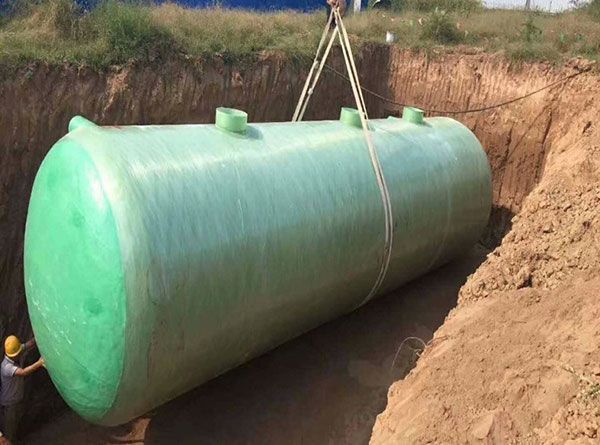- Home |
- FRP Underground Tank
FRP Underground Tank

Reliable, Corrosion-Resistant Storage Solutions for Subsurface Applications
At JM Zhongkai Chemical Equipment LLP, we specialize in manufacturing high-performance FRP Underground Tanks engineered to deliver reliability, corrosion resistance, and long service life. Designed to perform under tough subsurface conditions, our tanks are widely used in industries such as:
Effluent Treatment Plants (ETPs)
Sewage Treatment Plants (STPs)
Chemical Processing
Petroleum and Oil Storage
Water Management & Infrastructure
Product Highlights
🔹 Capacity Range: 5 kL to 50 kL
🔹 Burial Depth: From just below ground up to 2.5 meters
🔹 Corrosion Resistant: Built to handle acidic, alkaline, or chemically aggressive contents
🔹 Leak-Proof & Maintenance-Free: Seamless FRP construction ensures long-term integrity
🔹 Customizable: Manholes, nozzles, internal linings, partitions, and fittings available
🔹 Lightweight & Strong: Easy to install with minimal site disruption and equipment
Project Spotlight
📍 ONGC Mehsana Plant – In 2020, we supplied a 50 kL FRP underground tank, installed at a 2.5-meter burial depth. It has been operating successfully for STP use, showcasing our ability to deliver high-capacity solutions with durability and precision.
FAQs – FRP Underground Tanks
1. What is the maximum depth at which your FRP underground tanks can be installed?
Our tanks are engineered to be safely buried at depths up to 2.5 meters, with structural reinforcements to handle soil pressure and load variations.
2. What is the largest FRP underground tank you’ve manufactured and supplied?
We have designed and installed 50 kL tanks, including one for ONGC, which has been operational since 2020 under full underground conditions.
3. Are FRP underground tanks resistant to corrosion and chemical attack?
Yes, our FRP tanks are made with chemical-resistant resins and fiberglass, making them highly resistant to corrosion from acids, alkalis, petroleum products, and wastewater.
4. Can these tanks be used for petroleum or oil storage?
Absolutely. With proper resin selection, our tanks are suitable for petroleum, diesel, and oil-based products, ensuring long-term safety and containment.
5. How is installation carried out? Is heavy machinery required?
Installation involves excavation, compacted bedding, and anchoring. Thanks to their lightweight construction, FRP tanks often require less equipment than concrete or steel tanks.
6. Are customization options available for industrial needs?
Yes, our FRP tanks can be tailored with specific nozzles, access points, level indicators, partitioning, and internal fittings to meet project-specific needs.


